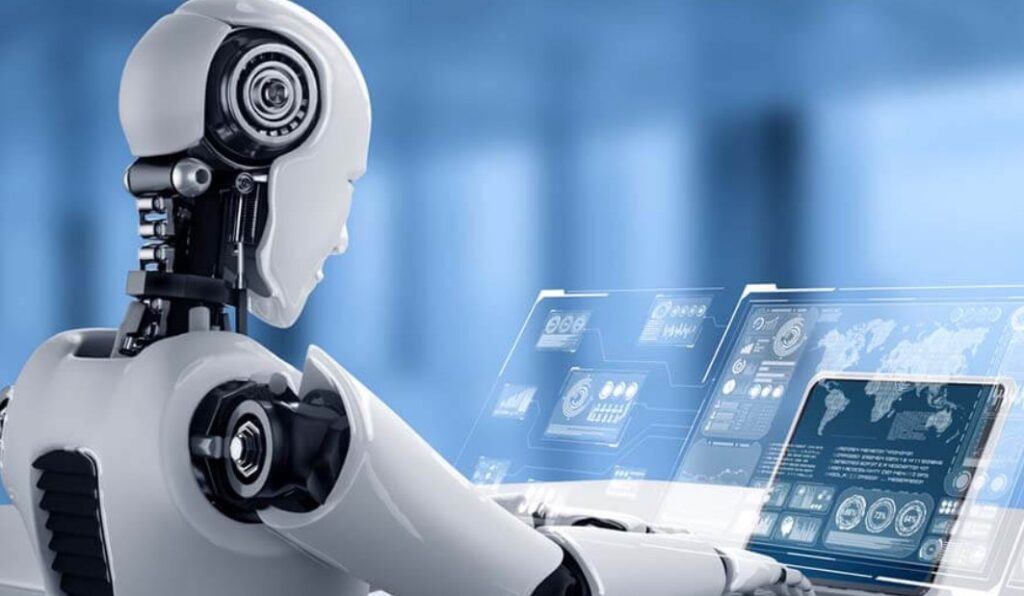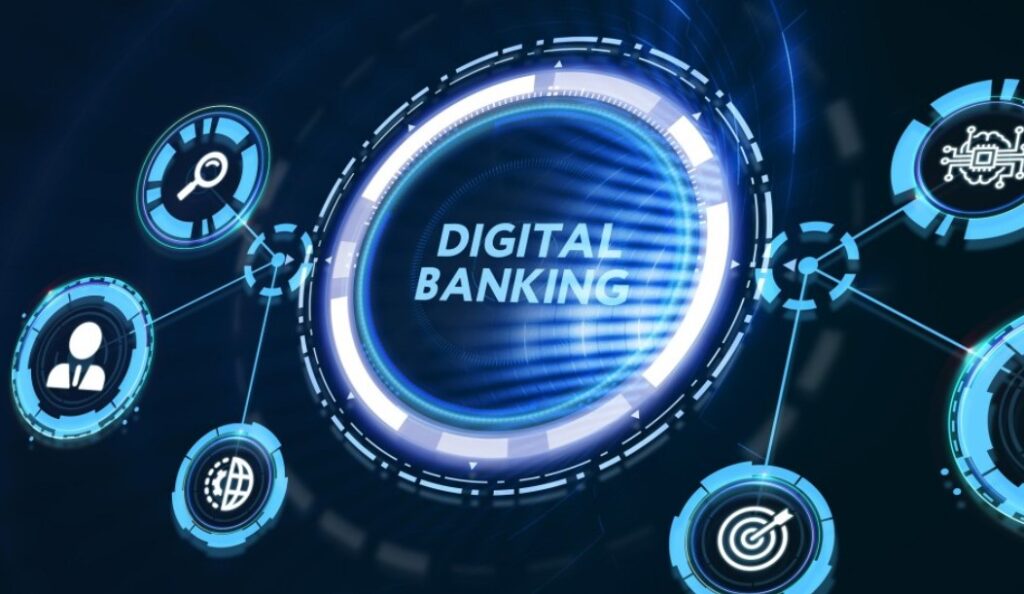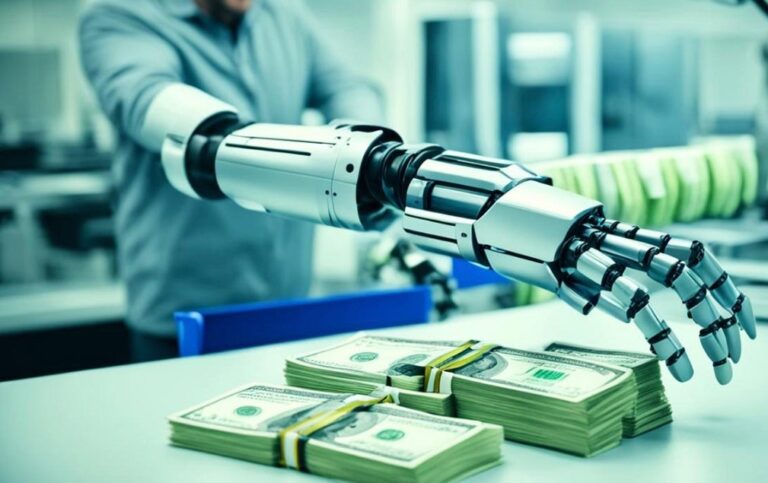Top 5 Industries with The Fastest Growth in The Next Decade
The global economy is rapidly evolving, and certain industries are projected to outpace others in the next decade. Understanding which sectors are likely to experience the fastest growth will help businesses, investors, and professionals prepare for future trends. In this article, we will explore five industries expected to grow the fastest, driven by technological advancements, consumer demand, and global economic shifts.
The Fastest Growing Major Economy in the World: Overview of Growth Trends

In the modern global landscape, the fastest growing major economy in the world often defines which industries see the highest growth. Countries like India and China are leading the charge, with high-tech sectors booming, fueled by massive populations and growing middle classes. By 2034, it’s anticipated that many industries will undergo significant transformation. But which industries will experience the most substantial shifts? Let’s explore the top 5.
1. Technology and Artificial Intelligence (AI)

What is Driving Growth in AI?
Artificial Intelligence (AI) is no longer just a futuristic concept—it is transforming industries on a global scale. AI technologies, including machine learning, natural language processing (NLP), and robotics, are reshaping industries by enabling computers to perform tasks that require human intelligence. These technologies have drastically improved efficiency, decision-making, and data analysis, leading to widespread adoption across multiple sectors such as healthcare, finance, manufacturing, and customer service.
The AI market is expected to experience an annual growth rate of 20%, with forecasts predicting it will be worth over $1.5 trillion by 2030. This growth is largely driven by increasing investments in AI research, improvements in computing power, and the vast amounts of data generated daily, which feed AI systems. Key areas like automation, predictive analytics, and AI-driven customer interactions are making AI indispensable for businesses looking to gain a competitive edge.
Benefits of AI in Industry
AI is beneficial in almost every industry due to its ability to perform complex tasks at a faster pace and with higher accuracy than humans. The primary benefits of AI in various sectors include:
- Increased Efficiency: AI-driven systems automate repetitive tasks, allowing businesses to focus on high-value activities. For instance, AI-powered robots in manufacturing can work 24/7, increasing production speed while reducing errors and costs.
- Enhanced Decision-Making: AI excels in analyzing vast datasets and providing insights in real-time. This capability is particularly valuable in industries like finance and healthcare, where data-driven decisions can improve outcomes and reduce risks.
- Personalization: In customer service and e-commerce, AI can analyze user behavior to create personalized experiences, improving customer satisfaction and driving sales.
- Predictive Capabilities: AI systems, particularly in finance and marketing, are adept at predictive analytics, helping businesses anticipate market trends, optimize inventory, and predict customer needs.
Real-World Example Product: AI Customer Service Platform
Insert image of the product: AI-Powered Customer Service Chatbot
An example of how AI is revolutionizing customer service is through AI-powered chatbots. These platforms use natural language processing (NLP) to understand and respond to customer inquiries in real-time, providing fast and accurate customer support.
- Product Name: AI Customer Service Platform
- Features: Real-time customer query responses, 24/7 availability, NLP for understanding context, and seamless integration with existing CRM systems.
- Price: Starts at $200/month for small businesses.
- Where to buy: AI Customer Service Platform
- Benefits: This platform can handle thousands of customer queries simultaneously, reducing the need for large customer service teams and improving response times.
- Use case: E-commerce companies can reduce operational costs by 50% while improving customer satisfaction, as AI chatbots provide instant answers to customer questions, ensuring faster resolution of issues.
AI in Healthcare: Revolutionizing Patient Care
Insert image of the product: AI-Driven Healthcare Diagnostics System
AI is making remarkable strides in healthcare, offering solutions that improve diagnosis, treatment, and patient outcomes. From AI algorithms that analyze medical images to predictive models that assess patient risk, AI is transforming how healthcare is delivered.
- Product Name: AI Healthcare Diagnostics System
- Features: AI-driven image recognition, patient risk prediction, integration with electronic health records (EHR), and remote patient monitoring.
- Price: $50,000 (enterprise solution for hospitals).
- Where to buy: AI Healthcare Diagnostics System
- Benefits: Reduces diagnostic errors by 30%, improves patient outcomes by enabling early detection of diseases, and allows for remote monitoring of patients with chronic illnesses.
- Use case: Hospitals and clinics using AI-powered diagnostic tools can enhance the accuracy of disease detection, reduce diagnostic time, and personalize patient treatment plans based on real-time data analysis.
AI in Manufacturing: Automation at Its Best
Insert image of the product: AI-Powered Robotics for Manufacturing
The manufacturing sector is undergoing a significant transformation with the integration of AI and robotics. AI-powered robots can perform tasks such as assembling products, quality control, and even predictive maintenance without human intervention.
- Product Name: AI-Powered Industrial Robot
- Features: Advanced sensors for real-time data collection, AI-driven decision-making for precision tasks, and predictive maintenance algorithms.
- Price: Starting at $100,000 per robot (depending on customization).
- Where to buy: AI-Powered Industrial Robot
- Benefits: These robots significantly increase production speed, reduce human errors, and lower operational costs in large-scale manufacturing.
- Use case: Automotive companies using AI robots in their assembly lines have reduced production time by 40%, while simultaneously improving product quality and safety standards.
Pros and Cons of AI in Industry
- Pros:
- Increased Productivity: AI enables automation of routine tasks, which speeds up processes and reduces human error.
- Cost Efficiency: Over time, AI systems can significantly reduce operational costs by replacing manual labor and improving the efficiency of processes.
- Data Insights: AI-driven analytics can reveal valuable insights from big data, leading to better decision-making and optimized operations.
- 24/7 Availability: Unlike humans, AI systems can work around the clock, providing continuous support and operations, which is particularly beneficial in sectors like customer service, manufacturing, and healthcare.
- Scalability: AI systems can scale effortlessly as business demands grow, offering flexibility for organizations of all sizes.
- Cons:
- High Initial Costs: Implementing AI technologies, especially in sectors like manufacturing and healthcare, requires significant upfront investment.
- Job Displacement: As automation increases, there are concerns about AI displacing certain job roles, particularly in low-skill labor sectors.
- Complexity in Integration: Integrating AI systems into existing business operations can be complex, requiring specialized skills and expertise.
- Data Privacy and Security: The extensive use of data in AI-driven systems raises concerns about data privacy, security, and ethical considerations.
How AI Solves Real-World Problems
AI is solving numerous real-world problems by streamlining processes and offering solutions that were previously unattainable. In healthcare, AI helps detect diseases at an early stage, providing better prognoses and personalized treatment plans. In manufacturing, AI-powered robots minimize production errors, ensuring consistency and quality in large-scale production. In the financial sector, AI-driven algorithms are improving fraud detection, helping to safeguard both businesses and consumers.
Where and How to Buy AI Products
AI products are available through specialized vendors and tech companies. For example, businesses looking to incorporate AI-driven solutions can purchase software platforms or physical products like robots from trusted vendors.
- AI Customer Service Platform: Available for purchase online through SaaS providers. Click here to explore pricing and packages.
- AI Healthcare Diagnostics System: Available from enterprise healthcare technology vendors. Get detailed quotes here.
- AI-Powered Industrial Robots: Purchase from robotics companies specializing in AI-driven manufacturing solutions. Request pricing and customization options here.
2. Green Energy and Renewable Resources

Why is Green Energy Booming?
The shift to green energy is more than a trend; it’s a necessity. With growing concerns over climate change and sustainability, governments and private sectors are investing heavily in renewable energy solutions. Solar, wind, and geothermal energy are becoming mainstream, and global investment in renewable energy is expected to exceed $5 trillion by 2030.
Benefits of Using Green Energy
The adoption of renewable energy helps reduce carbon emissions, lower energy costs, and provide sustainable energy sources for future generations. For businesses, using green energy can improve their environmental reputation and qualify for tax incentives and rebates.
Insert image of the product: Residential Solar Power Systems
Real-World Example Product:
Solar Energy Kit for Homes
- Features: Complete solar panel kits with inverter and installation services.
- Price: Starting at $12,000 for a 5kW system.
- Where to buy: Solar Energy Kit
- Benefits: Reduces electricity bills by up to 70%, qualifies for tax rebates, and offers energy independence.
- Use case: Homeowners in sunny regions can generate their own power, significantly lowering their utility costs.
Pros and Cons of Green Energy:
- Pros:
- Eco-friendly and reduces greenhouse gas emissions.
- Reduces reliance on fossil fuels.
- Long-term savings on energy costs.
- Cons:
- High upfront installation costs.
- Weather dependency (especially for solar and wind power).
3. Healthcare and Biotechnology

The Future of Biotechnology
Healthcare and biotechnology are expected to experience exponential growth in the coming years. Advancements in genetic engineering, personalized medicine, and telemedicine are transforming patient care. The industry is forecasted to grow at a rate of 12% annually, with significant investment in drug development, medical devices, and health data analytics.
Benefits of Biotechnology
Biotechnology helps in developing more effective treatments and cures for diseases. Innovations like CRISPR gene editing, biologic drugs, and personalized medicine are revolutionizing the way we approach healthcare, making treatments more efficient and tailored to individual needs.
Real-World Example Product:
Biotech Drug for Cancer
- Features: Targeted biologic therapy for cancer patients.
- Price: $150,000 per treatment cycle.
- Where to buy: Biotech Drug
- Benefits: Increases the survival rate of certain cancers by up to 30%, with fewer side effects than traditional chemotherapy.
- Use case: Cancer patients receiving personalized biologic treatments experience fewer side effects and improved outcomes compared to traditional therapies.
Pros and Cons of Biotechnology:
- Pros:
- Personalized treatment for better results.
- Innovations in medical devices and drugs.
- Expands treatment options for previously untreatable conditions.
- Cons:
- High cost of development and treatments.
- Ethical concerns surrounding genetic modifications.
4. E-Commerce and Online Retail

Why E-commerce is Exploding
The e-commerce industry has grown steadily over the past decade, but the next ten years are expected to see unprecedented growth. With more consumers shopping online than ever before, the industry is projected to reach a value of $7 trillion by 2030. The rise of mobile commerce, social commerce, and new payment methods are further accelerating this growth.
Benefits of E-Commerce for Businesses
E-commerce provides businesses with access to a global market, lower operational costs, and the ability to personalize marketing and customer experiences. Companies that embrace digital transformation and invest in omnichannel strategies will thrive in this environment.
Real-World Example Product:
All-in-One E-Commerce Solution
- Features: Website builder, payment processing, inventory management, and marketing tools.
- Price: Starting at $79/month.
- Where to buy: All-in-One E-Commerce Solution
- Benefits: Allows small businesses to sell online, manage inventory, and track orders seamlessly.
- Use case: Small businesses can expand their reach by selling products globally with an easy-to-use e-commerce platform.
Pros and Cons of E-Commerce:
- Pros:
- Expands customer reach globally.
- Reduces costs compared to brick-and-mortar stores.
- Provides valuable data on consumer behavior.
- Cons:
- Intense competition from other online retailers.
- Requires strong digital marketing strategies to stand out.
5. Fintech (Financial Technology)

The Rise of Fintech
Financial Technology (Fintech) is revolutionizing the way we handle transactions, investments, and banking. From mobile payments to blockchain, the fintech industry is expected to grow by 15% annually. With more consumers adopting digital wallets and cryptocurrencies, fintech companies are becoming the backbone of the modern financial system.
Benefits of Fintech for Consumers and Businesses
Fintech enables faster and more secure transactions, making financial services more accessible to people around the world. For businesses, fintech reduces transaction costs, enhances customer experiences, and opens new revenue streams through innovative financial products.
Real-World Example Product:
Cryptocurrency Exchange Platform
- Features: Secure trading for Bitcoin, Ethereum, and other cryptocurrencies.
- Price: 0.1% trading fee.
- Where to buy: Cryptocurrency Exchange Platform
- Benefits: Provides a secure platform for buying and selling digital assets, with low transaction fees.
- Use case: Individuals can diversify their investment portfolios with cryptocurrency, which offers high growth potential.
Pros and Cons of Fintech:
- Pros:
- Speeds up transactions and reduces fees.
- Increases access to banking services in underbanked regions.
- Offers new investment opportunities with digital currencies.
- Cons:
- Regulatory challenges in various countries.
- Security concerns around digital payments and cryptocurrencies.
Frequently Asked Questions (FAQs)
Q1: Which industries will grow the fastest in the next 5 years?
A1: The fastest growing industries over the next 5 years include AI, Green Energy, Biotechnology, E-Commerce, and Fintech.
Q2: What is the fastest growing industry in 2024?
A2: In 2024, Artificial Intelligence and Fintech are projected to be among the fastest growing industries due to advancements in technology and consumer demand for automation and digital solutions.
Q3: Why should businesses invest in green energy?
A3: Businesses should invest in green energy to reduce operational costs, qualify for tax incentives, and improve their sustainability practices, all while contributing to a cleaner environment.
This comprehensive guide on the top 5 industries with the fastest growth in the next decade outlines the technological advancements and market trends driving these sectors.






